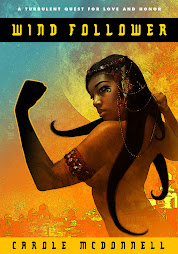Evening Prayers For Every Day of the Year by Christoph Friedrich Blumhardt
Growing up with the Book of Common Prayers, I have nothing against written prayers per se. Some of them are lovely and the best written-in-stone (so to speak) prayers are usually like perfectly distilled, perfectly chistled heartfelt communication from the depths of our spirit. As a penteocostal, charismatic, Christian, I also love a good spontaneous prayer. Who knew there was a book of written prayers that was perfect for folks like me!
I've never heard of Christoph Friedrich Blumhardt but apparently (at least from the cover) he was quite influential with folks like Karl Barth and Boenhoeffer. And I can see why.
First, the prayers are addressed to a living God who wants to do wonders in the world. They are prayers which seem to be born from someone keenly acquainted with the work, love, and power of the Holy Spirit. This is amazing to me. One cannot read these daily prayers and the Bible verses connected with them without developing a spirit of expectancy. Blumhardt repeatedly asks God to show His power, His love, His healing, His Wisdom.
Secondly, the prayers in this book are not necessarily evening prayers. There are very few prayers which actually should only be said at night.
Thirdly, the prayers are very very very insightful and although they don't read like treatises, they very well could be. The prayers are heartfelt and one often feels as if one is overhearing an intimate private conversation between a holy saint and God. But the prayers pack so much wonderful theology that they enlighten the heart and mind as one reads them.
Fourthly, the prayers are accessible. The language they are written in are modern and conversational. A child of ten or eleven can understand them as well as an adult. The super-theologically-educated will like it as well as those who know little about God.
Fifthly, the theology is presented in a way that will not offend anyone. Okay, unless one is extremely legalistic and picky about some pet theology, one will not find anything to argue about.
Lastly, this book is a classic. I didn't know the author until I got this book. And now I know why this is a classic.
I highly highly highly recommend this book. I have the book in hardcover and I guess my only nit is that the kindle is so expensive. ($8.49) Especially for a Christian book. But that's my nit, I guess.
I received this book freely in exchange for a free and honest review.









